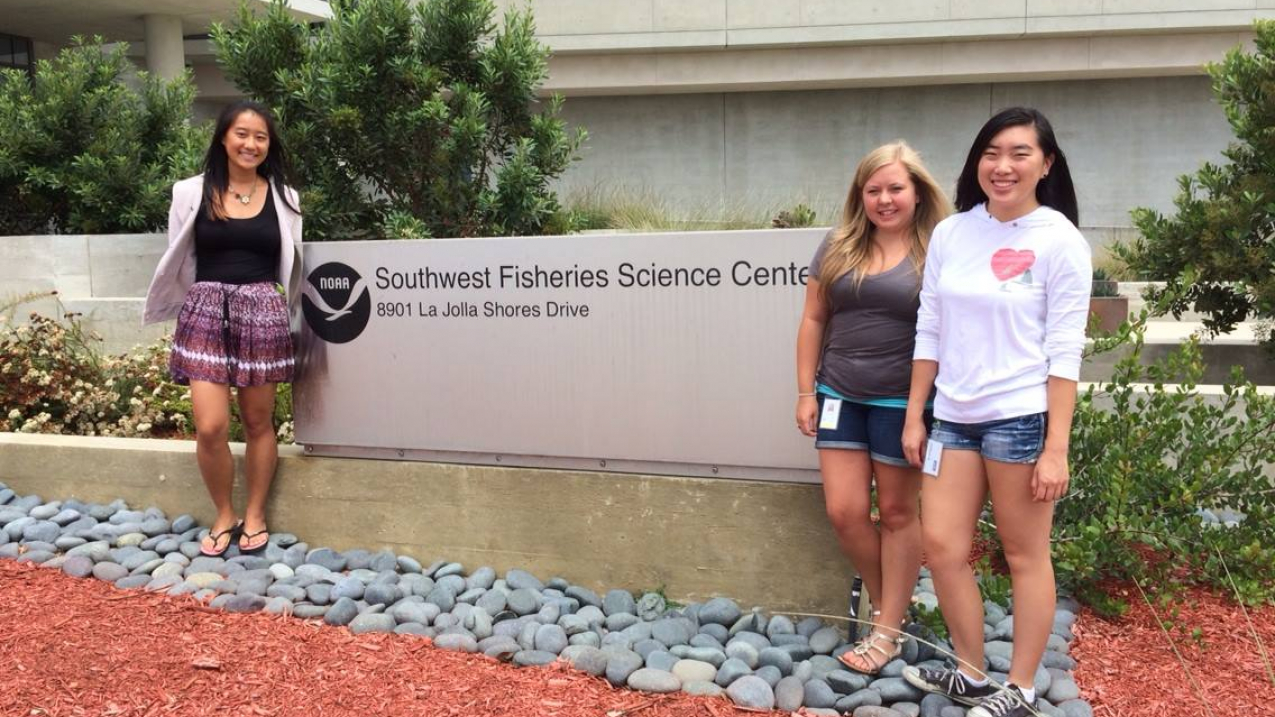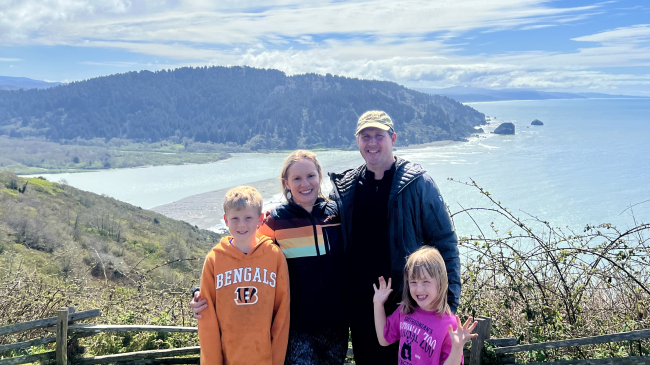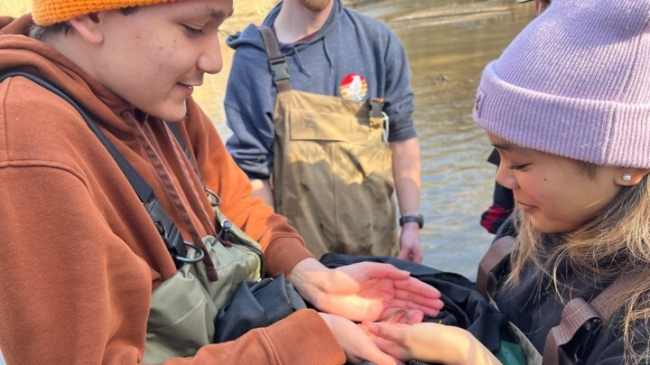Hollings Scholarship Alum & Graduate Research Fellow
Before earning a NOAA Hollings Scholarship in 2013, Paula Adams developed programming skills while studying biology in the Computer-Based Honors Program at University of Alabama. Her Hollings internship with the Southwest Fisheries Science Center in San Diego, CA, allowed her to explore conservation genetics while gaining more confidence in her coding ability.

(Left to right): Jiaming Zeng (Hollings Alum), Paula Adams (Hollings Alum) and Jayme Wong (summer intern). (Image credit: Paula Adams)
Paula ultimately combined her interest in conservation biology with her computer programming skills, and she’s currently pursuing her PhD in Bioinformatics, Computational Biology and Evolution at the University of Alabama. She received the National Defense Science and Engineering Graduate Research Fellowship to support her post-graduate education, and recently published her Hollings research in a peer-reviewed scientific journal, Molecular Ecology Resources offsite link.
Paula interned in the Marine Mammal Genetics Group under the guidance of Dr. Eric Archer. The software package being used to analyze marine mammal population data was taking a long time for scientists to run, potentially slowing down research on protected and endangered species. Paula worked with her mentor and other NOAA scientists to create a user-friendly population genetics toolkit, which produces custom data analyses much more quickly than the previous software.
Take advantage of networking opportunities and find out what everyone around you is working on.
As an intern, Paula learned to integrate C++ programming language into R, an open source software environment. In addition, she learned how genetics is used to guide management decisions. Outside of work, Paula participated in an Ocean to Table dinner during her summer in California, which supported conservation efforts for the vaquita, an endangered marine mammal. The dinner was widely attended by NOAA and US Fish and Wildlife scientists, as well as Mexican fisheries scientists, and the focus was on cooperating across agencies and borders to achieve shared conservation goals.
Paula started as a PhD student at the University of Alabama in January 2016. She plans to develop a project using population genetics to study freshwater fish species in Alabama. Looking forward, Paula would like to work for a nonprofit or government agency that focuses on applied genetics research.



